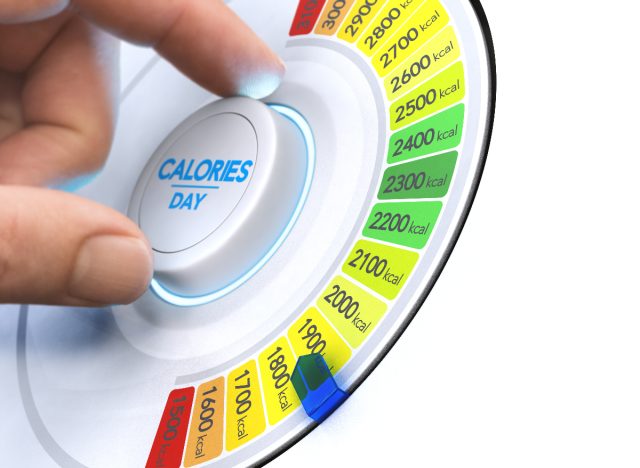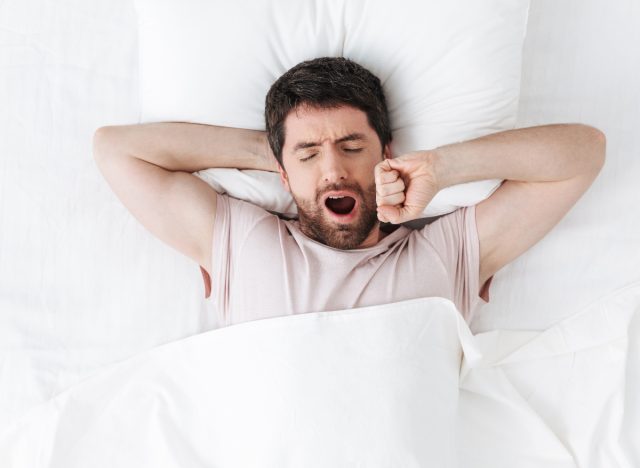5 Bad Fitness Habits That Cause You To Lose Muscle Mass

The foundation of any successful fitness regimen is built upon healthy habits. Whether your goal is to run your first marathon, set a deadlift personal record, or commit to a daily walking routine, the key is sticking to regular habits that nudge you along the path to a healthier, fitter you. However, when it comes to reaching your health and fitness goals, knowing what not to do is often equally as important as knowing the right things to do. Building and maintaining muscle mass is no exception to this universal rule. To help you develop and hold on to your lean muscle, we're sharing five bad fitness habits that cause you to lose muscle mass so you can avoid them at all costs.
You can spend countless hours in the gym and train with Tazmanian devil-like intensity, but if you have lousy fitness habits, you're shooting yourself in the proverbial foot and are unlikely to reach your fitness goals. Fortunately, by making minor tweaks to your nutrition, workout routine, and daily behaviors, you'll avoid the pitfalls of bad habits and drastically improve your ability to grow muscle. Certified personal trainer Kate Meier, CPT of Gym Garage Reviews shares the lowdown on which bad fitness habits you should avoid like the plague. Keep reading to find out what they are, then check out The 5 Best Diet & Exercise Tips To Regain Muscle Mass.
You're not eating enough calories.

A surefire way to lose muscle mass is not consuming enough energy (calories). Food is fuel for your muscles, and not eating enough calories means your body will run on an empty tank.
"Significantly cutting calories combined with intensive cardio will lead to muscle loss over time," says Meier. "Speak with a nutritionist or use an online calorie calculator to help determine how many calories your body needs to support everyday functions and your training regimen."
You're overtraining.

"Training consistently is a key aspect of building muscle, but overtraining can have the exact opposite effect," cautions Meier. Unless you're an endurance athlete who runs marathons or competes in triathlons, working out too much can lead to overtraining syndrome (OTS), a condition that occurs when you don't allow for proper recovery after consistent, vigorous training sessions, according to the Hospital for Special Surgery (HSS). Additionally, reduced muscle glycogen levels and muscle weakness are associated with overtraining, research shows. Common symptoms of OTS include extended fatigue, poor sleep quality, low energy, persistent muscle soreness, and mood swings, according to the HSS.
You're not prioritizing sleep.

Sleep is likely the most powerful (yet most underrated) aspect of any health or fitness goal. Practicing good sleep hygiene and making high-quality, restorative sleep a top priority will help you maintain and grow muscle. Research shows that not getting good quality sleep, or not sleeping enough, can heighten your risk of losing muscle mass.
"Your muscles repair and grow while you sleep, and sleep regulates virtually all of your bodily functions," says Meier. "Aim to get eight solid hours of shuteye each night. This will help prevent long-term fatigue and help with muscle growth if you work out consistently."
You're not consuming enough protein.

Your body consists of roughly 20% protein; it's found in all of your cells. Therefore, getting enough protein is critical for not only good health but also for building and retaining muscle mass.
"Regardless of your nutrition strategy, ensure you're getting enough protein in your diet," says Meier. "Muscle is fueled by protein, so proper recovery and muscle growth depends on it."
While the international recommended dietary allowance (RDA) for the amount of protein you should consume is 0.8 grams per kilogram of your body weight, you'll need to consume more if your goal is to optimize muscle growth and recover from workouts faster. The American College of Sports Medicine (ACSM) recommends consuming between 1.2 and 2.0 grams of protein per kilogram of body weight daily for the best results. Just make sure you're strength training and getting your protein from whole food sources and high-quality protein powders.
You're doing too much cardio.

While regular cardio exercise is fantastic for overall health, going overboard can cause muscle loss. The Physical Activity Guidelines for Americans recommend that healthy adults get a minimum of 150 minutes of moderately intense aerobic exercise per week. However, consistently going above and beyond this threshold—combined with not eating enough calories or doing strength training—is a bad habit for anyone wanting to maintain or regain muscle mass.
"Making sure your body is properly fueled ahead of cardio workouts is crucial, because as much as it helps you burn more calories and fat, it will also burn muscle once other energy sources are depleted," says Meier. "The bottom line is you should find a good balance between cardio and strength training if your goal is muscle growth."
- Source: https://www.ncbi.nlm.nih.gov/pmc/articles/PMC3435910/
- Source: https://www.ncbi.nlm.nih.gov/pmc/articles/PMC7284919/
- Source: https://www.ncbi.nlm.nih.gov/pmc/articles/PMC5749041/
- Source: https://pressbooks-dev.oer.hawaii.edu/humannutrition/chapter/defining-protein/
- Source: https://www.ncbi.nlm.nih.gov/pmc/articles/PMC5872778/
- Source: https://www.livescience.com/does-protein-build-muscle
- Source: https://health.gov/sites/default/files/2019-09/Physical_Activity_Guidelines_2nd_edition.pdf









